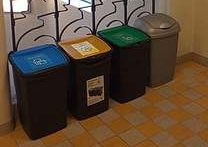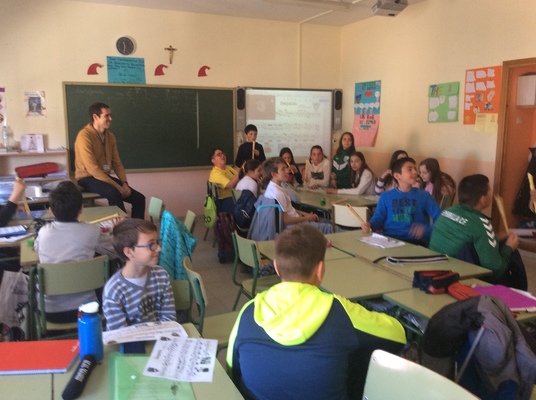May — June 2023
To make the stay in Tallinn memorable for our partners, we prepared a lot of activities Activities during Mobility C6 in Tallinn 29.05.2023-02.06.2023
Ice-breaking activities
Ice-breaking activities were used to help kids overcome the initial hesitation of interacting with other children. We included several games: The Ball game, Clap, clap game, and Cats and Mice game. The aim of these activities was to have fun, get to know each other through interesting ways in the open air and help every child feel like a part of the team. The Ball Game is designed to be used as an icebreaker for a group of strangers who have never met each other. Children should say their names and reveal something interesting, then throw the ball to the second person. In this way, the icebreaker is an effective way to get children to start talking and sharing about themselves. The Clap, clap game begins when all the children create the same rhythm by clapping their hands 2 times and slapping their knees 2 times. The first kid says her/his name during the snap, snap part of the rhythm. The next player takes over and says his/her name. The game continues until the last kid in the circle names himself. The Cats and Mice game is a traditional game played by children of all ages. The aim of this game is for the mouse to get outside the circle and avoid being caught by the cat. The circle players must try to keep the cat away from the mouse by holding up their hands to let it in and out of the circle.
Musical Workshop with Mihhail Gorjushin
M. Gorjushin is a prominent music teacher and a renown choral conductor in Estonia. The aim of the workshop was, on the one hand, to familiarize the participants with some breathing techniques as effective tools in improving respiration; on the other hand, to trigger interaction among the kids with the help of engaging rhythmic exercises as well as those by Carl Orff. Breathing exercises according to the method of Strelnikova and Zoltán Kodály, exercises for the freedom of the vocal apparatus etc. resulted in the youngest singers of Sakala School performance together with the guests.
Pirita Beach Cleaning Up
This beach, the biggest in Tallinn, is in the suburbs of Pirita but is popular with beachgoers all over the city. It is easy to get to by bus from the city centre. The beach has changing cabins, playgrounds for children and areas for ball games. All the above makes Pirita Beach a smart choice for the Ecological Brigades to go there and clean it up.
Visit to the PROTO Invention Factory
The PROTO Invention Factory is a unique combination of novel VR technology and prototypes of technology more than a century old, forming an entertaining experiment centre. There are dozens of attractions awaiting new adventurers, available at various levels of difficulty and for every age group. The world seen through VR goggles creates a direct sensory experience for the visitors. The PROTO invention factory offers educational programmes for students. Little kids are also entertained in the children’s area by some educational exhibits.
Laboratory of Biopolymer Technology, Department of Materials and Environmental Technology, School of Engineering, Tallinn University of Technology,
Professors, researchers, and specialists of reusing plastic gave us a lecture about plastic, its constitution, differences, and problems. They also addressed the concepts of bioplastics and recycling. Students attended 2 workshops, one of which had the objective of producing paper from weeds, fabrics, and reused paper. The other concerned the combustion of plastics.
All the participants were divided into 2 age groups. The younger ones produced eco-friendly paper from various ingredients: seaweed, old textiles, used paper. Samples of the prepared paper were presented to the heads of international groups as gifts.
The older students worked in the laboratory on the research and identification of various plastic samples. From the observation of the flame’s color, it is possible to know the type of constituent materials.
Thermoplastic cellulose esters are promising materials for bioplastic packaging. For that usage, it is important to understand their mechanical and surface wettability properties. In this study, a series of cellulose esters are prepared, such as laurate, myristate, palmitate, and stearate. The aim of the study is to investigate the tensile and surface wettability properties of the synthesized cellulose fatty acid esters to understand their suitability as a bioplastic packaging material.
The teachers visited the university and some of its laboratories.
Handicraft and Arts Workshops with Environmental Issues in Mind
Crafts
Estonian residents pay much attention to road safety. Since it is dark in Estonia almost all year round in the evening, when visibility is complicated, drivers pointed out a big problem — pedestrians are not visible. Therefore, there is a law in Estonia to wear reflectors on outerwear in dark seasons. The masterclass’s purpose was to create a souvenir reflector in the form of a marine inhabitant. The Art teacher suggested sewing an octopus-shaped reflector from used textiles and reflective elements. Within our project, we are concerned about protecting endangered marine species, while the octopus-reflector will be protecting our lives.
Arts
The second master class was organized by a student of the 8th grade. The purpose of her work was to leave a personal memory of the Estonian landscape, the coast and the beach of Pirita, where project cleaning campaign was organized. The classroom was decorated with the works of other students, the sounds of the Estonian coast, the sound of the sea and the cries of seagulls sounded, various natural materials collected during a walk by the sea lay on the tables: stones, sand, moss, algae, pine and spruce branches, flowers, and scraps of fishing nets. The children fixed natural materials on pre-prepared paintings and created their own picture of Estonia and the Baltic Sea.
Wittenstein Activity Museum
Travelling to the Republic of Estonia when visiting different floors of the Tower, visitors get to know what kind of life Estonians live in ancient times and how the local people became Vikings. They will learn about the order period in Old Livonia and the late medieval times of kings. The young and the elderly can get to know the Estonian tsarist manors, as well as get an overview of the time of occupations and the newly independent Republic of Estonia.
Attendance of Science Centre AHHAA
The aim of Science Centre AHHAA is to introduce science to everyone and encourage studying through the joy of discovery. People of different ages visit its exhibitions and other science events. In addition, visitors of AHHAA can take part in workshops, enjoy planetarium and science theatre shows. Special programmes for schools and visitors of all ages are offered in Estonian, Russian, English, and Latvian, which is a fantastic opportunity to spend a fun day filled with science.
Wondrous Water Workshop
Children and teachers looked at where water comes from, what are its three wondrous states, and its physical and chemical properties. Though water is the central topic of this show, the experiments were far from watered down: the visitors to the show and the water itself were set to fire!
Water may seem most ordinary, but it is an interesting substance. Not only does it make Earth habitable and quenches our thirst, but it also has many useful tricks up its sleeve. Caring about oceans, our project cannot avoid being interested in the wondrous water. The audience was encouraged to answer the questions and comment on the show. A few especially courageous spectators participated in experiments as volunteers.
The Estonian Open Air Museum
The Estonian Open-Air Museum, established on the territory of the former Rocca al Mare summer estate, reminds of a village which lies in the boundaries of Tallinn. Its collection consists of about 80 buildings from the past two hundred years presenting the unique local architecture.
As located on Estonian landscape, the farms of the museum are arranged according to old village types: farms from Western and Northern Estonia; farms from the islands; farms from Southern Estonia; he Setu farm and Russian Old Believer’s house from the Lake Peipus. Public buildings like the school, the chapel, the inn, the village shop, and the fire station, constitute a small village centre. The landscape is made more impressive by several mills and net sheds by the sea. Museum lessons introducing Estonian history and peasant life are offered, as well as activities supporting integration and Estonian language learning for children, young people, and adults.
Cultural Lesson
Divided into 2 groups, students together with teachers got information on what it was like to live 150 years ago. For example, one family, which might have had as many as 20 members, had to live in a one-room house which had no chimney and no comforts. Those days, everything ordinary people needed had to be done by backbreaking and grueling work.
Food was scarce, there were never enough warm clothes for everybody, and epidemics emptied whole villages. Even in those tough times there were bright moments: holidays were celebrated, wedding parties were arranged, and village swings were the center of many social events.
In the museum lessons visitors learned about life in an Estonian village and experienced some aspects of it.


